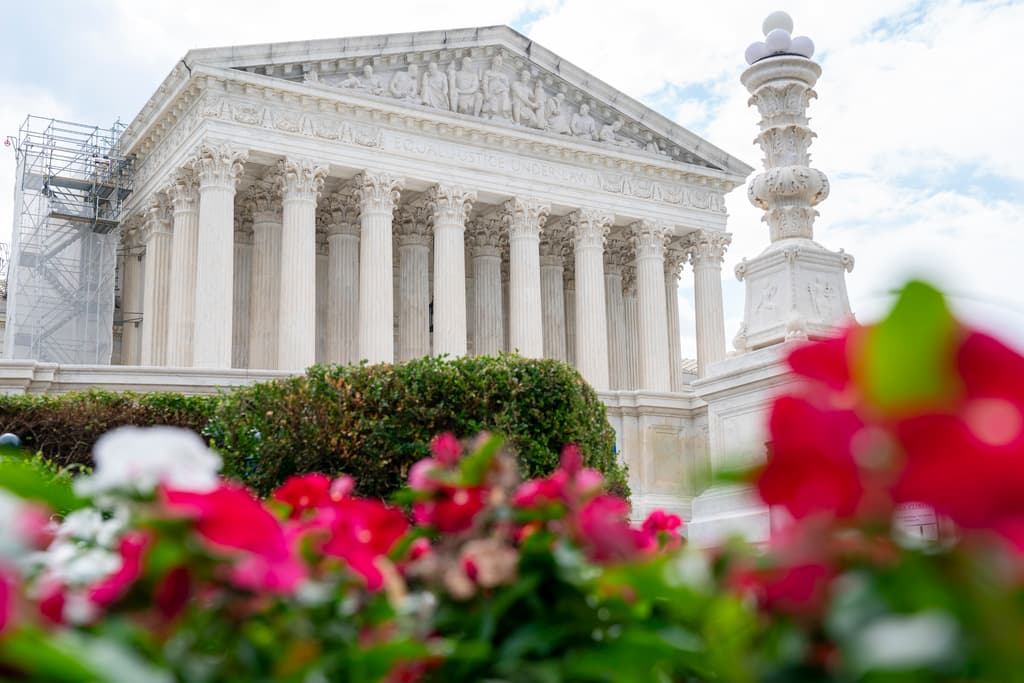Will Guns Be Legal on Hawaii’s Beaches? A State Judge Is Set To Decide in the Latest Fight To Interpret Messy Supreme Court Precedent
Three Maui residents are suing to block a new Hawaii law which prohibits carrying guns on the beach, in bank parking lots, and in businesses that sell alcohol.

When the Supreme Court last year expanded Second Amendment rights in a landmark decision, many states’ gun laws were thrown into chaos. A federal judge in Hawaii will soon be the latest jurist who has to interpret what the justices meant in that opinion.
Judge Leslie Kobayashi of the District of Hawaii is set to issue an opinion in the coming days that will determine whether her home state can ban the carrying of firearms on public beaches, as well as in bank parking lots and businesses that sell alcohol. Such a ban took effect on July 1 after the measure was signed by Hawaii’s governor, Josh Green.
Three Maui residents, with the support of the Hawaii Firearms Coalition, sued to stop the law from taking effect, arguing that their Second Amendment rights do not end where the shore begins. The case, Wolford v. Lopez, argues that a Supreme Court case from last year explicitly makes the Hawaii law unconstitutional.
The high court case, New York State Pistol and Rifle Association, Inc. v. Bruen, held that any and all firearms regulations must be “consistent with the Second Amendment’s text and historical understanding,” which the plaintiff, Jason Wolford, argues precludes the Hawaii law from taking effect, as banning firearms from public places is not a “historical” practice.
The author of the Bruen decision, Justice Clarence Thomas, held that restrictions on firearms must be considered in the historical context of the Second Amendment’s ratification in 1791. “[T]o the extent later history contradicts what the text says, the text controls,” Justice Thomas wrote of evolutions in Second Amendment jurisprudence throughout the late 19th century and beyond.
“Only those restrictions with roots at the time of the Founding are sufficiently ‘enduring’ and ‘well-established’ to comport” with the Second Amendment, Mr. Wolford’s lawsuit states.
Hawaii is just the latest state to face intense scrutiny from gun rights advocates. In 2022, a federal judge in upstate New York, Glenn Suddaby, held that the Empire State’s post-Bruen update to its firearms restrictions did not comport with Supreme Court precedence.
Just days after the Bruen decision was handed down, Governor Hochul signed into law a number of new restrictions, including the banning of guns from so-called sensitive places, which she wrote to include the entire island of Manhattan.
Mr. Wolford argues — just as Second Amendment supporters in New York did — that any “sensitive places” regulations on when and where guns can be carried is in violation of the Constitution as understood by the justices of the Supreme Court.
Federal laws also have not been spared from these methods of historical interpretation. In June, a federal judge from the Southern District of Mississippi, Carlton Reeves, declared unconstitutional the federal ban on felons owning firearms, saying it did not pass constitutional muster under Second Amendment and Supreme Court precedent.
Even though Judge Reeves struck down that ban, he made no bones about the fact that he was deeply frustrated with the “historical tradition” standard set forth by the justices. During the proceedings, Judge Reeves said the high court was asking him — and all judges — to “play historian” in order to interpret these firearms restrictions. At one point, while clearly frustrated, he mused about whether he should appoint a trained historian to help him interpret the statute.
When he did issue his opinion, Judge Reeves lambasted the Supreme Court for “cherry-picking” information to pursue its own ideological outcomes. “[I]t appears that the Court continues to engage in ‘law office history’ — that is, history selected to ‘fit the needs of people looking for ammunition in their causes’ — in Constitutional interpretation,” he wrote in his final opinion.
“Nevertheless,” he continued, “the standard announced by the Supreme Court in Bruen is the law of the land. It must be enforced. Under that standard, the government has failed to meet its burden” to defend the law.
During the next Supreme Court term, the justices will likely be asked to clarify their mechanisms of constitutional interpretation as set forth in Bruen. Earlier this year, the Fifth Circuit Court of Appeals, in United States v. Rahimi, declared unconstitutional the federal ban on those under restraining order from owning weapons.
One of the jurists on that Fifth Circuit panel, Judge James Ho, wrote in his concurring opinion that while he may be disgusted by acts of domestic violence and stalking, those individuals must be dealt with without “offending” their Second Amendment rights.
“Those who commit or criminally threaten domestic violence have already demonstrated an utter lack of respect for the rights of others and the rule of law,” Judge Ho wrote in his opinion. “So merely enacting laws that tell them to disarm is a woefully inadequate solution. Abusers must be detained, prosecuted, and incarcerated. And that’s what the criminal justice system is for.”
The Supreme Court announced in June that it would hear the government’s appeal in Rahimi during the coming term.

